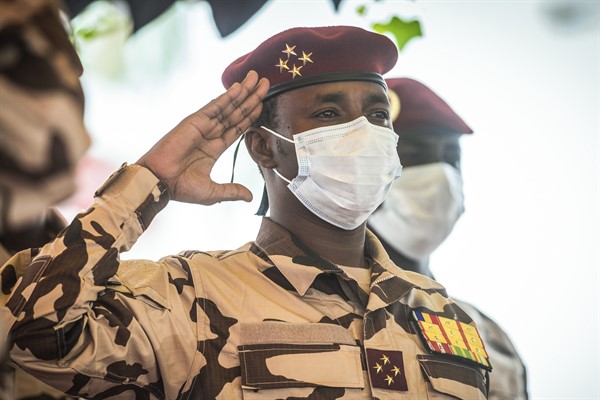The death of Chadian President Idriss Deby in April ended his three-decade rule and plunged the Central African country into uncertainty. Officially, Deby succumbed to wounds sustained on the frontlines of battle with a rebel group called the Front for Change and Concord in Chad, known by its French acronym FACT. Chad’s constitution stipulates that in the event of the president’s death, the speaker of the National Assembly serves as interim head of state and organizes new presidential elections within 90 days.
Instead, a military junta made up of those close to Deby announced that his son, Gen. Mahamat Idriss Deby, had been appointed interim president and leader of a 15-member transitional military council. Speculation that the elder Deby had been grooming his son to succeed him had been widespread prior to his death. The junta proceeded to suspend the government, legislature and constitution in what effectively amounted to a coup.
Mahamat Deby then appointed an interim prime minister, Albert Pahimi Padacke, to manage the day-to-day work of government ministries. Padacke oversees a predominantly civilian Cabinet comprising former ruling party stalwarts, former opposition leaders and former Chadian rebels who now serve as political advisers. Of course, these figures serve at the pleasure of the junta, which consolidated its political control by coopting the interim government.

